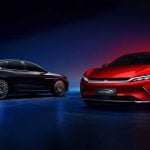

Gasoline Cars vs Electric Cars
In recent years, the automotive industry has witnessed a significant shift in the types of vehicles being manufactured and purchased. With concerns about the environment and rising fuel costs, the debate between gasoline cars and electric cars has become more prominent. This article aims to explore the various aspects of this debate, comparing fuel efficiency, the rise of electric cars, their environmental impact, fuel costs, performance, charging infrastructure, the future of transportation, maintenance and reliability, and consumer perspectives. By examining each of these factors, we hope to provide a comprehensive analysis of the advantages and disadvantages of both petrol-powered cars and electric cars, shedding light on the ongoing transformation of the automobile industry.
- 1. “Comparing Fuel Efficiency: Gasoline Cars vs Electric Cars”
- 2. “The Rise of Electric Cars: A Threat to Petrol Powered Cars?”
- 3. “Unveiling the Electric Revolution: Tesla, Prius, and BMW Leading the Way”
- 4. “Environmental Impact: Gasoline Cars vs Electric Cars”
- 5. “Understanding Fuel Costs: Are Electric Cars Cheaper in the Long Run?”
- 6. “Performance Showdown: Gasoline vs Electric Cars”
- 7. “Charging Infrastructure: Overcoming the Challenges for Electric Cars”
- 8. “The Future of Transportation: Analyzing the Shift from Petrol to Electric”
- 9. “Maintenance and Reliability: Comparing Gasoline and Electric Cars”
- 10. “Consumer Perspectives: Choosing Between Gasoline and Electric Cars”
1. “Comparing Fuel Efficiency: Gasoline Cars vs Electric Cars”
Comparing Fuel Efficiency: Gasoline Cars vs Electric Cars
When it comes to fuel efficiency, there is a significant difference between gasoline cars and electric cars. Gasoline cars, also known as petrol-powered cars, have long been the conventional choice for transportation. On the other hand, electric cars, such as the renowned Tesla, the popular Prius, or the luxurious BMW i3, have gained immense popularity in recent years due to their eco-friendly nature and technological advancements.
Gasoline cars rely on internal combustion engines that burn gasoline or diesel fuel to power the vehicle. These engines convert the chemical energy in fuel into mechanical energy, which ultimately propels the car forward. While gasoline cars have undergone numerous improvements to enhance their efficiency over the years, they still have inherent limitations. The energy conversion process in these vehicles is not entirely efficient, resulting in energy loss through heat and other mechanical processes.
On the contrary, electric cars are powered by electricity stored in rechargeable batteries. These vehicles utilize electric motors to convert electrical energy into mechanical energy, providing a smooth and quiet ride. Due to the absence of combustion engines, electric cars produce zero tailpipe emissions, making them a greener alternative to gasoline cars. From an energy efficiency standpoint, electric cars surpass gasoline cars as they can convert a higher percentage of stored energy into actual motion. This efficiency advantage is primarily due to the fact that electric motors have fewer moving parts and therefore experience less energy loss.
In terms of fuel costs, electric cars have a clear advantage. While the price of gasoline fluctuates and can be influenced by geopolitical factors, the cost of electricity is generally more stable. Furthermore, electric cars tend to have lower maintenance costs compared to gasoline cars, as they require fewer engine-related repairs. Electric car owners also benefit from government incentives and tax credits, which can further offset the initial purchase cost.
However, it is essential to consider the availability and accessibility of charging infrastructure when comparing fuel efficiency between gasoline and electric cars. Gasoline cars have an extensive network of gas stations worldwide, providing drivers with the convenience of refueling wherever needed. In contrast, electric cars rely on charging stations, which are still being developed and expanded. Although the number of charging stations is increasing, the charging process for electric cars typically takes longer than refueling a gasoline car, which could present a challenge on long road trips or in areas with limited charging infrastructure.
In conclusion, the fuel efficiency of electric cars surpasses that of gasoline cars due to their superior energy conversion and fewer energy losses. Electric cars not only offer a greener alternative but also lead to lower fuel costs and decreased maintenance expenses. However, the current limitations in charging infrastructure should be taken into account when considering the practicality of electric cars for individual needs and preferences. As technology continues to advance, it is expected that electric cars will become an even more viable and sustainable option for transportation in the future.
2. “The Rise of Electric Cars: A Threat to Petrol Powered Cars?”
In recent years, there has been a significant rise in the popularity and adoption of electric cars, which has sparked debates about the potential threat they pose to petrol-powered cars. With the emergence of innovative electric car manufacturers like Tesla, the iconic Prius by Toyota, and even luxury brands like BMW entering the electric vehicle market, the transition towards a greener future seems inevitable.
One of the most glaring advantages of electric cars over petrol-powered cars is their environmental impact. Electric cars produce zero tailpipe emissions, reducing air pollution and combating climate change. Countries around the world are increasingly implementing stricter emission standards, and electric cars offer a viable solution to meet these requirements. As concerns about global warming and air quality continue to grow, the demand for electric cars is likely to increase.
Another factor that makes electric cars a potential threat to petrol-powered cars is the continuously improving technology. Advancements in battery technology have resulted in longer driving ranges and shorter charging times, addressing the range anxiety that was once a major drawback of electric cars. Moreover, the development of an extensive charging infrastructure has made it more convenient for electric car owners to recharge their vehicles. As these technologies continue to evolve, the appeal and practicality of electric cars will only increase.
One of the main concerns for car owners is the cost of fuel. While petrol-powered cars heavily rely on fossil fuels, electric cars offer a more cost-effective alternative. With electricity generally being cheaper than gasoline, electric car owners can save a significant amount of money in fuel costs over time. Additionally, governments and energy companies are offering incentives and subsidies to encourage the adoption of electric cars, further reducing the financial burden of owning and operating these vehicles.
Despite these advantages, there are still a few challenges to overcome before electric cars can completely replace petrol-powered cars. The limited availability of charging stations, especially in rural areas, can be a deterrent for potential electric car buyers. Additionally, the initial purchase price of electric cars is often higher than that of their petrol-powered counterparts, although this gap is expected to narrow as technology advances and economies of scale are achieved.
In conclusion, the rise of electric cars poses a potential threat to petrol-powered cars. With their environmental benefits, advancing technology, and cost-effectiveness in terms of fuel, electric cars are gaining momentum and attracting more consumers. While there are still hurdles to overcome, such as charging infrastructure and initial costs, the transition towards electric cars seems inevitable. As more car manufacturers invest in electric vehicle development and governments prioritize sustainable transportation, the days of petrol-powered cars dominating the roads may be numbered.
3. “Unveiling the Electric Revolution: Tesla, Prius, and BMW Leading the Way”
The automotive industry has witnessed a significant shift in recent years, as the demand for electric cars continues to grow. This shift can be attributed to several factors, including environmental concerns, advancements in technology, and the increasing availability of charging infrastructure. Among the leaders in this electric revolution are Tesla, Prius, and BMW, who have emerged as frontrunners in the race towards a greener future.
Tesla, founded by visionary entrepreneur Elon Musk, has become synonymous with electric cars. With their sleek designs, exceptional performance, and cutting-edge technology, Tesla vehicles have captured the imagination of car enthusiasts worldwide. The company’s flagship models, such as the Model S, Model 3, and Model X, have redefined the electric car market and set new standards for innovation and sustainability.
The Toyota Prius, often hailed as the pioneer of hybrid vehicles, has played a crucial role in popularizing electric cars. Combining a petrol-powered engine with an electric motor, the Prius offers improved fuel efficiency and reduced emissions. Its success has paved the way for other hybrid and electric models, demonstrating the viability of environmentally friendly transportation options.
BMW, a renowned luxury car manufacturer, has also embraced the electric revolution. The company’s electric vehicles, such as the i3 and i8, showcase BMW’s commitment to sustainable mobility without compromising on performance or style. With sleek designs, impressive acceleration, and a range of electric models, BMW has solidified its position as a leader in the electric car market.
One of the significant advantages of electric cars is their lower fuel costs compared to petrol-powered cars. While petrol prices are subject to fluctuations, electric cars offer a more stable and predictable cost of ownership. Charging an electric car at home or at public charging stations is generally more affordable than refueling a petrol car. Additionally, electric cars benefit from tax incentives and reduced maintenance costs, further enhancing their appeal to consumers.
In conclusion, the electric revolution in the automotive industry is well underway, with Tesla, Prius, and BMW leading the way. These companies have introduced innovative electric models that have redefined the concept of sustainable transportation. As the demand for electric cars continues to rise and charging infrastructure becomes more widespread, the shift towards a greener future is becoming increasingly feasible. With lower fuel costs and reduced emissions, electric cars offer a compelling alternative to traditional petrol-powered vehicles.
4. “Environmental Impact: Gasoline Cars vs Electric Cars”
When comparing the environmental impact of gasoline cars versus electric cars, it becomes evident that the shift towards electric vehicles is crucial for a sustainable future. Gasoline cars, also known as petrol-powered cars, have been the dominant form of transportation for decades. However, their reliance on fossil fuels contributes significantly to pollution and climate change.
One of the key advantages of electric cars is their zero-emission nature. Unlike gasoline cars that emit harmful pollutants, such as carbon dioxide, nitrogen oxides, and particulate matter, electric cars produce zero tailpipe emissions. This reduction in greenhouse gas emissions plays a vital role in combating climate change and improving air quality in urban areas.
Furthermore, the production and extraction of fossil fuels for gasoline cars inflict significant environmental damage. The drilling, refining, and transportation processes associated with fossil fuel extraction not only contribute to pollution but also cause habitat destruction and oil spills that harm ecosystems and wildlife. On the other hand, electric cars rely on electricity as their primary source of energy, which can be generated from renewable sources like solar or wind power, resulting in a cleaner and greener transportation option.
In terms of energy efficiency, electric cars outperform gasoline cars. While gasoline cars typically have an efficiency rate of around 20%, electric cars can convert over 80% of the electrical energy from the grid to power at the wheels. This higher efficiency translates to lower energy consumption and reduced dependence on fossil fuels.
Fuel costs are also a significant factor when comparing gasoline cars to electric cars. Electric cars generally have lower operating costs since electricity is cheaper than gasoline. Additionally, the maintenance costs for electric cars are typically lower due to fewer moving parts and less wear and tear on the engine.
The rise of electric car manufacturers, such as Tesla, Prius, and BMW, has accelerated the adoption of electric vehicles globally. These companies have focused on developing innovative technologies and improving battery performance, making electric cars more accessible and practical for everyday use.
In conclusion, the environmental impact of gasoline cars versus electric cars is starkly different. Electric cars offer a sustainable and eco-friendly alternative to traditional gasoline cars by reducing greenhouse gas emissions, minimizing pollution, and promoting renewable energy sources. As we move towards a greener future, the shift towards electric vehicles is crucial for mitigating climate change and preserving our planet for future generations.
5. “Understanding Fuel Costs: Are Electric Cars Cheaper in the Long Run?”
When considering the question of whether electric cars are cheaper than gasoline cars in the long run, it is essential to take into account the fuel costs associated with each type of vehicle.
Petrol-powered cars, also known as gasoline cars, rely on traditional fossil fuels to operate. The cost of gasoline can vary significantly depending on factors such as global oil prices, taxes, and local regulations. These fuel costs can add up over time, especially if you have a long commute or frequently take long trips. Additionally, the reliance on finite fossil fuels raises concerns about their long-term availability and environmental impact.
On the other hand, electric cars, such as those produced by Tesla, Prius, or BMW, are powered by electricity stored in a battery. Charging an electric vehicle typically costs significantly less than refueling a petrol-powered car. The exact cost depends on various factors, including electricity rates, charging infrastructure availability, and the efficiency of the vehicle’s battery. In general, electric cars tend to be more energy-efficient than their gasoline counterparts, allowing for reduced fuel costs over the vehicle’s lifetime.
Moreover, with the growing popularity of renewable energy sources, such as solar and wind power, electric car owners have the option to generate their electricity at home. This can further reduce their overall fuel costs, making electric cars an even more economical choice.
Although the initial purchase price of electric cars is often higher than that of gasoline cars, the potential savings in fuel costs can offset this difference over time. Additionally, governments and many local authorities offer incentives and tax credits to promote the adoption of electric vehicles, further reducing the financial burden.
It is important to note that individual circumstances and usage patterns can influence the cost comparison between gasoline and electric cars. Factors such as the availability and accessibility of charging stations, the distance traveled daily, and the cost of electricity in a specific region can all impact the overall cost-effectiveness of electric cars.
In conclusion, while the upfront cost of electric cars may be higher, their lower fuel costs and potential long-term savings make them a compelling option for budget-conscious individuals. As the popularity of electric vehicles continues to rise and charging infrastructure expands, the cost advantage of electric cars is expected to become even more significant, making them an attractive choice for environmentally-conscious consumers looking to save on fuel costs.
6. “Performance Showdown: Gasoline vs Electric Cars”
When it comes to the performance of gasoline cars versus electric cars, there are several factors to consider. Traditionally, gasoline-powered cars have been favored for their ability to deliver high performance and speed. However, with advancements in electric vehicle technology, the performance gap between the two is narrowing.
Gasoline cars have long been associated with powerful engines, providing drivers with a thrilling experience on the road. Models like the BMW M3 and the iconic American muscle cars are renowned for their impressive acceleration and top speeds. These vehicles are designed to deliver a dynamic driving experience, with their engines producing high levels of horsepower and torque.
On the other hand, electric cars have been perceived as more focused on efficiency and sustainability rather than performance. However, the rise of electric vehicles, particularly those manufactured by Tesla, has challenged this perception. Tesla’s electric cars, such as the Model S and Model 3, have gained popularity for their impressive acceleration and instant torque delivery. The Model S, for instance, can go from 0 to 60 mph in just a few seconds, rivaling some of the fastest gasoline-powered sports cars.
While gasoline cars may still hold an edge in terms of top speed, electric cars excel in terms of instant torque. Electric motors provide instantaneous power, allowing electric cars to accelerate quickly from a standstill. This makes them highly responsive and enjoyable to drive, especially in city environments where quick acceleration is often needed.
In terms of handling and maneuverability, both gasoline and electric cars can deliver exceptional performance. Manufacturers like BMW have made significant investments in improving the handling capabilities of their electric models, ensuring an engaging driving experience. Electric cars, with their lower center of gravity due to the battery placement, also tend to offer better grip and stability on the road.
When comparing the fuel costs of gasoline and electric cars, it is evident that electric cars have a clear advantage. Electric vehicles have lower energy costs per mile compared to their gasoline counterparts. With rising petrol prices, the cost savings offered by electric cars are becoming increasingly attractive to consumers. Additionally, electric cars benefit from government incentives and tax credits, further reducing the overall cost of ownership.
In conclusion, the performance showdown between gasoline cars and electric cars is no longer a one-sided affair. While gasoline cars still hold an advantage in terms of top speed, electric cars, particularly those manufactured by Tesla, are closing the gap with their impressive acceleration and instant torque. With lower fuel costs and government incentives, electric cars are becoming a viable option for those seeking both performance and sustainability in their vehicles. Whether it’s the roar of a petrol-powered engine or the silent power of an electric motor, the choice ultimately comes down to personal preferences and priorities.
7. “Charging Infrastructure: Overcoming the Challenges for Electric Cars”
Charging Infrastructure: Overcoming the Challenges for Electric Cars
One of the major challenges electric cars face is the availability and accessibility of charging infrastructure. Unlike traditional petrol-powered cars that can be refueled at any gas station, electric cars rely on charging stations to recharge their batteries. This poses a significant hurdle for widespread adoption and long-distance travel.
Currently, the charging infrastructure for electric cars is not as widespread or developed as petrol stations. While major cities and urban areas have started installing charging stations, the availability of charging points in remote or rural areas remains limited. This lack of infrastructure can deter potential electric car buyers, as the fear of running out of charge and being stranded is a valid concern.
However, efforts are being made to address this issue and expand the charging infrastructure network. Governments, companies, and organizations are investing in the development of more charging stations to ensure convenient access for electric car owners. Tesla, for instance, has installed its Supercharger network, which provides high-speed charging stations along major travel routes, enabling long-distance travel for their electric vehicles.
In addition to the expansion of charging stations, advancements in technology are also helping to overcome the challenges of charging infrastructure. Faster charging options, such as DC fast charging, are becoming more prevalent, allowing electric cars to recharge their batteries in significantly less time. This not only reduces charging time but also enhances the practicality of electric cars for daily commuting and long-distance travel.
The cost of charging an electric car is another aspect that needs to be considered. While fuel costs for petrol-powered cars are relatively stable, the cost of charging an electric car can vary depending on the electricity rates and charging infrastructure. However, in many cases, electric cars prove to be more cost-effective in the long run, especially when compared to the rising prices of petrol and diesel.
To encourage the growth of charging infrastructure, governments are implementing various incentives and policies. These include financial incentives for the installation of charging stations, tax credits for electric car owners, and regulations requiring new buildings to include charging infrastructure. Such measures aim to create a supportive environment for electric car adoption and to alleviate concerns about charging availability.
In conclusion, the expansion of charging infrastructure is crucial for the widespread adoption of electric cars. Overcoming the challenges related to charging infrastructure will not only increase the convenience and practicality of electric vehicles but also contribute to reducing greenhouse gas emissions and dependence on fossil fuels. As more companies like Tesla, Prius, and BMW invest in charging infrastructure and governments implement supportive policies, the future of electric cars looks promising.
8. “The Future of Transportation: Analyzing the Shift from Petrol to Electric”
In recent years, there has been a significant shift in the automotive industry as more and more people are considering electric cars as a viable alternative to petrol-powered vehicles. This transition towards electric vehicles has been driven by various factors such as environmental concerns, advancements in technology, and the growing availability of charging infrastructure.
One of the main reasons for the increasing popularity of electric cars is their positive impact on the environment. Petrol-powered cars emit greenhouse gases and contribute to air pollution, which has detrimental effects on both human health and the planet. On the other hand, electric cars produce zero tailpipe emissions, helping to reduce air pollution and combat climate change. This shift towards electric vehicles is crucial in our efforts to create a sustainable future and mitigate the effects of global warming.
Furthermore, advancements in battery technology have made electric cars more efficient and practical for everyday use. Companies like Tesla, Prius, and BMW have been at the forefront of this revolution, producing electric vehicles with longer driving ranges, faster charging times, and improved performance. These developments have addressed some of the concerns that potential buyers had regarding the limitations of electric cars, such as range anxiety and lack of charging infrastructure.
Another significant advantage of electric cars is their lower fuel costs compared to petrol-powered vehicles. While the initial purchase price of an electric car may be higher, the long-term savings on fuel expenses can offset this difference. Electric cars are more energy-efficient, and the cost of electricity is generally lower than petrol. Additionally, governments and utility companies often offer incentives and subsidies for electric vehicle owners, further reducing the overall cost of ownership.
As the demand for electric cars continues to rise, there has been a significant increase in the availability of charging infrastructure. Public charging stations are becoming more prevalent, and many home and workplace charging options are now available to electric vehicle owners. This expanding network of charging stations provides convenience and peace of mind to electric car owners, eliminating concerns about running out of power during long journeys.
In conclusion, the future of transportation is undoubtedly shifting from petrol-powered cars to electric vehicles. The environmental benefits, advancements in technology, and the potential for cost savings make electric cars an attractive option for both consumers and governments. As more companies invest in electric vehicle development and charging infrastructure, we can expect to see a continued growth in the adoption of electric cars. This transition is an essential step towards a greener and more sustainable transportation system.
9. “Maintenance and Reliability: Comparing Gasoline and Electric Cars”
When it comes to maintenance and reliability, there are significant differences between gasoline-powered cars and electric cars. Let’s delve into the advantages and disadvantages of each.
Gasoline cars, also known as petrol-powered cars, have been around for over a century. They have a well-established infrastructure for maintenance and repairs, with a wide availability of skilled mechanics and spare parts. However, gasoline cars require regular maintenance, including oil changes, filter replacements, and spark plug inspections. These routine maintenance tasks can add up in terms of time and cost.
On the other hand, electric cars, such as those made by Tesla or the popular Prius hybrid by Toyota, have fewer moving parts compared to their gasoline counterparts. This means they generally require less maintenance. Electric cars don’t need oil changes, as they don’t have internal combustion engines, and they have fewer components that can wear out or malfunction. This can result in lower maintenance costs over time.
Moreover, electric cars often come with longer warranty periods, providing peace of mind to owners. For example, Tesla offers an eight-year/unlimited-mileage warranty on its battery and drive unit, which are critical components of an electric vehicle. In comparison, warranties for gasoline cars typically cover a shorter duration.
However, the reliability of electric cars can be affected by the availability and quality of charging infrastructure. While the number of charging stations is increasing, it may still be more challenging to find a charging point compared to a gasoline station. Additionally, the range anxiety associated with electric cars can be a concern for some drivers, as they need to plan their journeys carefully to ensure they can reach a charging point when needed.
When considering fuel costs, electric cars come out on top. Electricity is generally cheaper than gasoline or diesel fuel, resulting in lower fueling expenses. Additionally, electric cars benefit from tax incentives and rebates in many countries, further reducing the overall cost of ownership.
In conclusion, electric cars offer advantages in terms of maintenance and reliability. They require less routine maintenance and often come with longer warranties. However, the availability of charging infrastructure and range anxiety can be drawbacks. Despite these challenges, the lower fuel costs and environmental benefits make electric cars an attractive option for many drivers. As technology continues to improve, electric cars are likely to become even more reliable and convenient for everyday use.
10. “Consumer Perspectives: Choosing Between Gasoline and Electric Cars”
Consumer Perspectives: Choosing Between Gasoline and Electric Cars
When it comes to selecting a new car, consumers are faced with an important decision: whether to opt for a traditional gasoline-powered vehicle or embrace the growing trend of electric cars. This choice is not only influenced by personal preferences but also by various factors such as cost, environmental impact, and technological advancements.
One significant aspect that consumers consider is the fuel source of the vehicle. Gasoline cars, also known as petrol-powered cars, have been the dominant choice for decades. They offer a familiar driving experience and a wide range of options from various manufacturers such as Tesla, BMW, and Prius. These vehicles rely on internal combustion engines fueled by gasoline, which is readily available at gas stations worldwide. However, the rising concerns about climate change and the increasing cost of fossil fuels have shifted consumer perspectives towards electric cars.
Electric cars, on the other hand, are gaining popularity due to their eco-friendliness and potential cost savings. These vehicles are powered by electricity stored in a rechargeable battery pack, eliminating the need for gasoline. As a result, they produce zero tailpipe emissions, reducing carbon footprint and air pollution. Furthermore, advancements in battery technology have led to increased driving ranges, making electric cars a feasible option for daily commuting and longer trips.
One of the primary considerations for consumers is the cost of owning and operating a vehicle. While the upfront cost of electric cars is generally higher than that of gasoline cars, they offer potential savings in the long run. Electric cars have lower maintenance costs due to fewer moving parts and no oil changes. Additionally, the cost of electricity is often cheaper than gasoline, resulting in lower fuel costs. Some governments also provide incentives such as tax credits and subsidies to promote the adoption of electric vehicles, further reducing the financial burden for consumers.
However, there are still some challenges that consumers take into account when deciding between gasoline and electric cars. The limited availability of charging infrastructure is a concern for those considering electric vehicles. Although the network of charging stations is expanding, it is not as extensive as the ubiquitous presence of gas stations. This can be a deterrent for those who frequently travel long distances or lack access to home charging options. Additionally, the time required to charge an electric car is significantly longer compared to refueling a gasoline car, which may not be convenient for everyone.
In conclusion, consumer perspectives on choosing between gasoline and electric cars are evolving. While gasoline cars offer familiarity and a wide range of options, electric cars are gaining traction due to their environmental benefits and potential cost savings. As the technology continues to advance and the charging infrastructure improves, electric cars are becoming a viable alternative for an increasing number of consumers. By weighing factors such as fuel costs, environmental impact, and convenience, individuals can make an informed decision that aligns with their values and needs.
Table of Contents
ToggleAdd a comment Cancel reply
Categories
- Auto Detailing (4)
- Car News (47)
- Car Reviews (34)
- Classic Cars (20)
- Importing Rules By Country (5)
- Japan Car Auctions (2)
- JDM (15)
- Uncategorized (22)
Recent Posts
About us

I am not one for writing articles actually so most of these articles come from contributors that I have met over the years or with a little help of our AI buddy.
If you have any desire to import a car from Japan or simply need some advice get in touch via Whatsapp here at +81-90-5400-6384
Looking For That Special Car Has Never Been Easier.
Finding the right car in Japan is not always easy and finding the best partner in Japan to help you with this is sometimes even harder.
With over 25 years buying history and great contacts all over Japan I can help you in every way.
Get hold of me today!
Popular Tags
Related posts


USS Ninja Alternatives






Unveiling the Truth of Chinese Cars






Capitalizing on the Car Buyer's Market












